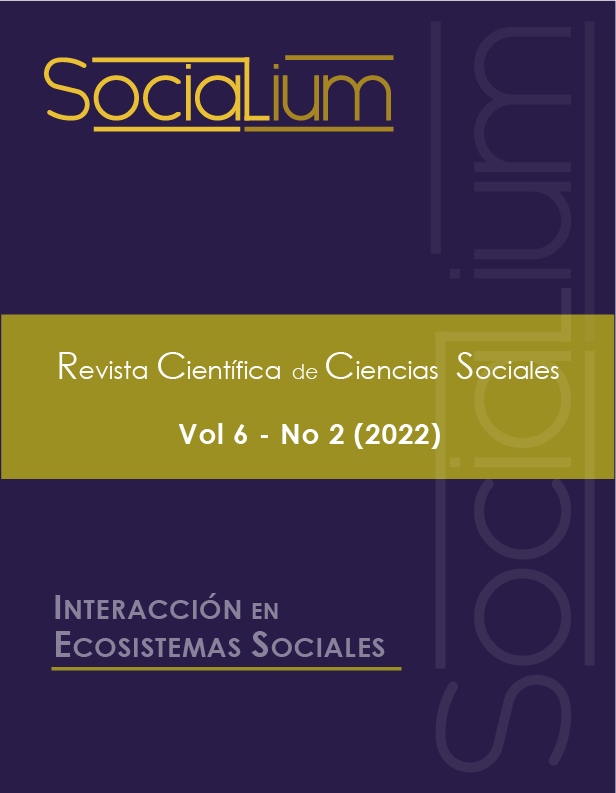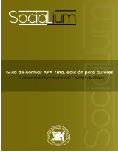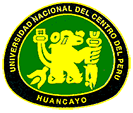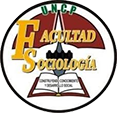COVID-19 in the peasant community of Ñuñungayocc – Huancavelica, 2020
DOI:
https://doi.org/10.26490/uncp.sl.2022.6.2.1422Keywords:
COVID-19, emigrant, pandemicAbstract
The general objective of this article is to explain the consequences of COVID-19 in families in the rural community of Ñuñungayocc-Huancavelica in 2020. The method used was scientific and inductive, the type of research is basic, with a qualitative approach, descriptive level. and ethnographic design. The key informants were ten community members (qualified and unqualified), the data collection techniques were documentary analysis, interviews, and observation. The result that was reached is that the pandemic generated by COVID-19 broke the tranquility of rural spaces; Ñuñungayocc is an area considered poor, with homes that live off communal productivity. Many of those who returned to Ñuñungayocc have been people who lost their jobs (informal trade), were fired (jobs in small factories), in general people who did not have their own home. This return meant many changes in the community, it has interrupted the tranquility of the communal territory, access to resources, and in terms of health, respiratory diseases and infections have occurred, which ended in the deaths of many natural community members of the area.
Finally, the conclusion is that COVID-19 generated the return of emigrants from cities such as Lima, Huancayo and Huancavelica, interrupting the tranquility of the communal territory, subsequently many of the families complicating their health and deaths in the peasant community, carrying out the treatment with ancestral and conventional wisdom.
References
Acosta, M. (2020). Pueblos indígenas y afrodescendientes y las medidas para enfrentar el COVID-19. Editorial ACN. https://www.researchgate.net/publication/342926230_Chapter_15_Desequilibrio_ambiental_y_la_pandemia_de_COVID-19
Casazola, J. (2021). Tiempos de crisis y vulneración de derecho intercultural a la salud en las comunidades altoandinas. Revista Pacha, derechos y visiones, 1(1), 25-34. https://www.researchgate.net/publication/349148243_Covid-19_Tiempos_de_crisis_y_vulneracion_del_derecho_intercultural_a_la_salud_en_las_comunidades_altoandinas
CEPAL (2020). El impacto del Covid-19 en los pueblos indígenas de América Latina – Abya Yala. https://www.cepal.org>files>S2000817_es.
Dreon. E. (20202). Modos de re-existencia de las mujeres indígenas y campesinas en Bolivia en tiempos de COVID-19. Latinoamérica, una región en crisis. http://sedici.unlp.edu.ar/handle/10915/117617
Henao-Faffure, L. (2009). El concepto de pandemia: debate e implicaciones a propósito de la pandemia de influenza de 2009. Revista Gerenc. Polit. Salud, 9 (19): 53-68. http://www.scielo.org.co/pdf/rgps/v9n19/v9n19a05.pdf
Hernández, R., Fernández, C y Baptista, P: (1999). Metodología de la investigación México: McGRAW-HILL.
Maguiña, C., Gastelo, R. y Taquen, A. (2020). El nuevo Coronavirus y la pandemia del Covid – 19. Rev Hered. 2020; 31:125-131. DOI: https://doi.org/10.20453/rmh.v3li2.3776.
Matamoros, E. (2020). El COVID - 19 y la migración hacia las Costa Caribe. Editorial ACN. https://www.researchgate.net/publication/342926230
Medina, J. (2020). Pandemia por SARS-CoV-2 (COVID-19): entre la incertidumbre y fortaleza. Revista Médica, 36(2):119-120
Ñaupas, H. (2009). Metodología de investigación científica y asesoramiento de tesis. Lima, Perú: Gráfica RetaI S.A.C.
Schettini, P. (2015). Análisis de datos cualitativos en la investigación social. Argentina: Universidad Nacional De La Plata.
Ulloa, R., Ivankovich, G y Yamazak, M. (2020). Síndrome inflamatorio multisistémico asociado a la COVID-19 en niños y adolescentes: una llamada al diagnóstico. Revista Chilena Infectol 37 (3): 199-201
Valle, F., Casaverde, Y., Oscco, E y Mallma, D. (2020). Migración temporal de comuneros campesinonos hacia las ciudades del Valle de Andahuaylas antes del Covid 19. Universidad José María Arguedas.
Zafaroni. E. (2020). Nuestro derecho y la postpandemia. Derechos En Acción, 15(15), 406. https://doi.org/10.24215/25251678e406
Cepes. (2008). Los derechos de propiedad sobre la tierra en comunidades campesinas. Lima, Perú: CEPES.
Gonzales de Olarte. (1986) Economía de la comunidad campesina. Lima, IEP.
Downloads
Published
Issue
Section
License
Copyright (c) 2022 Francisca Huamán Pérez, Gualberto Poma Castellanos, Roberto Lider Churampi Cangalaya

This work is licensed under a Creative Commons Attribution 4.0 International License.








.jpg)















